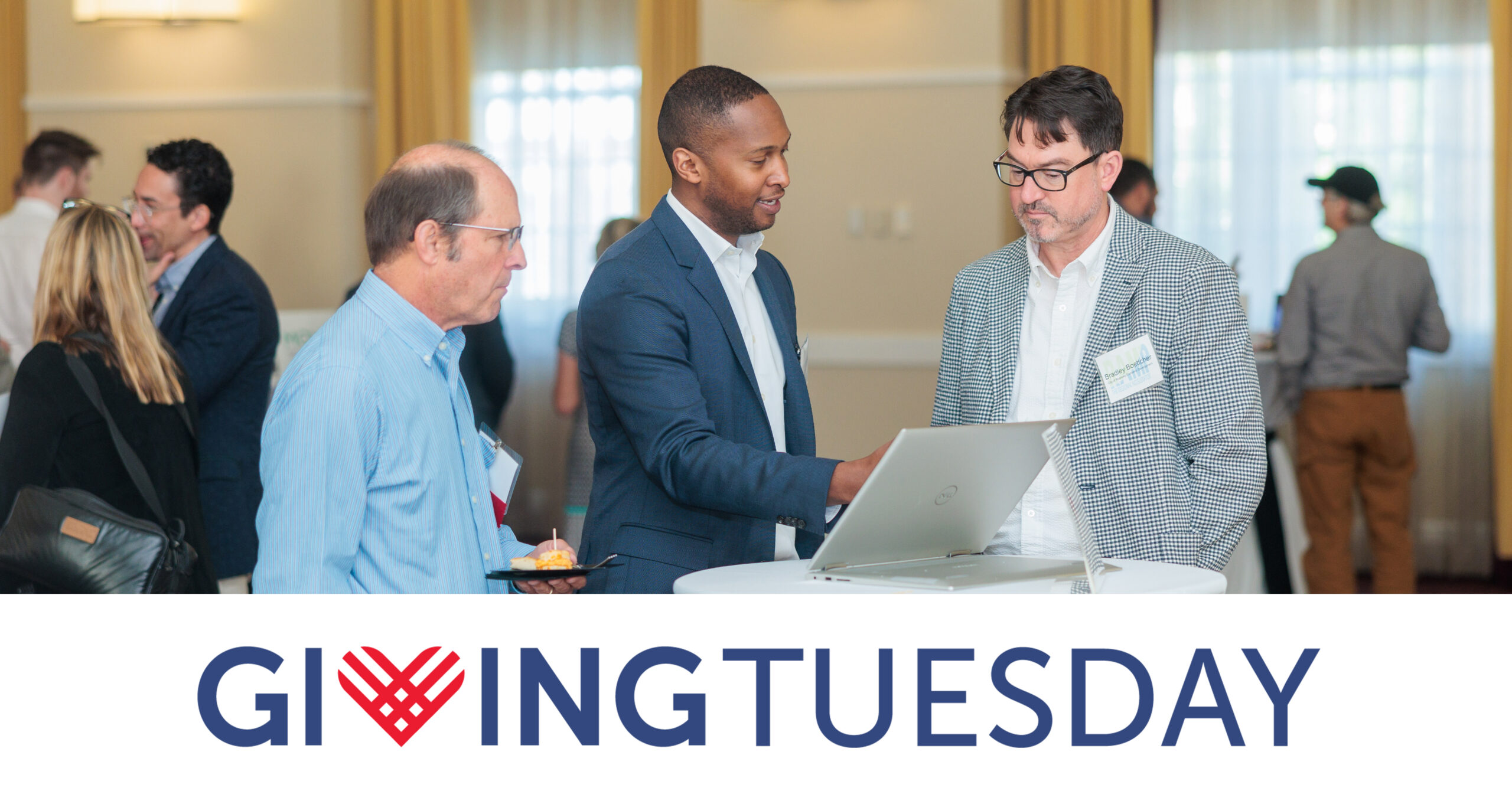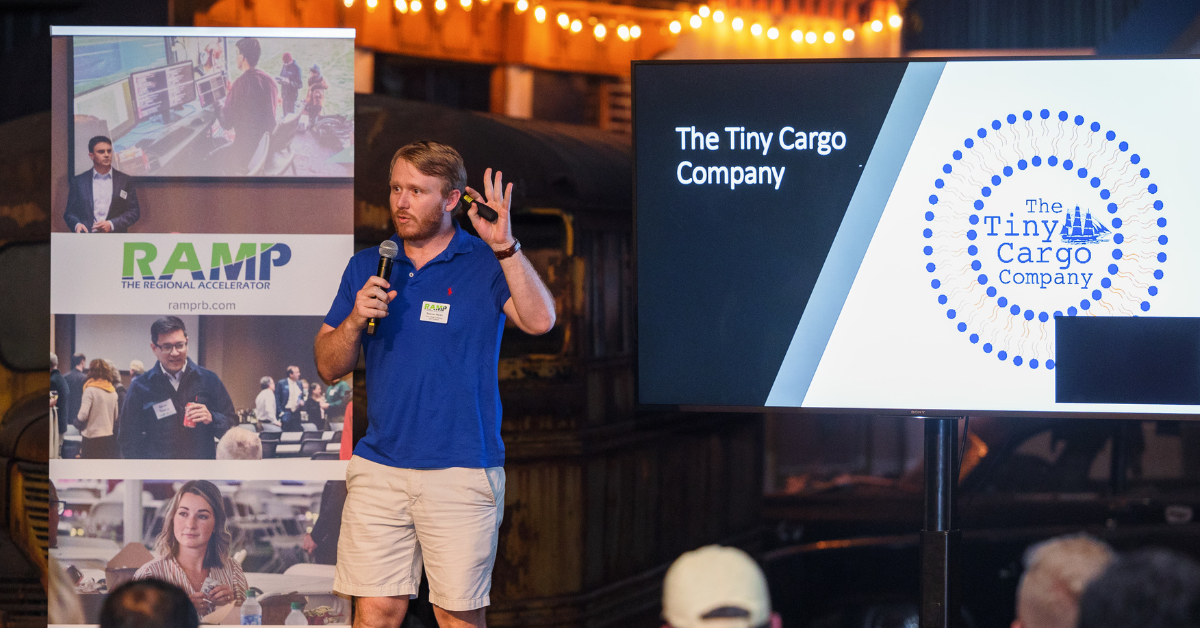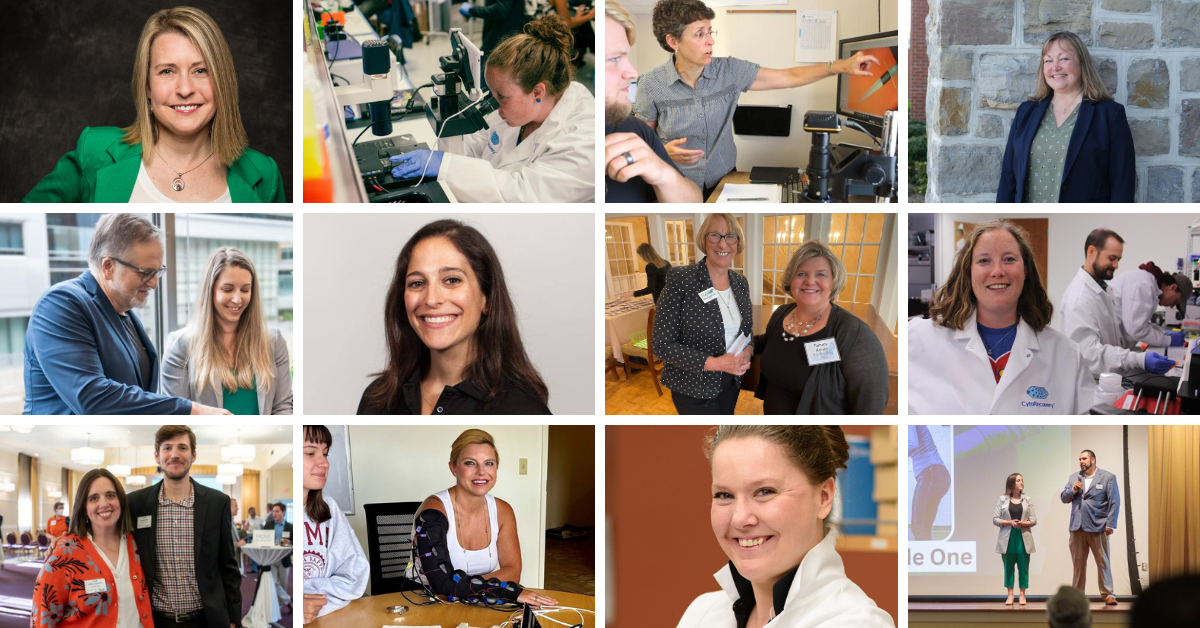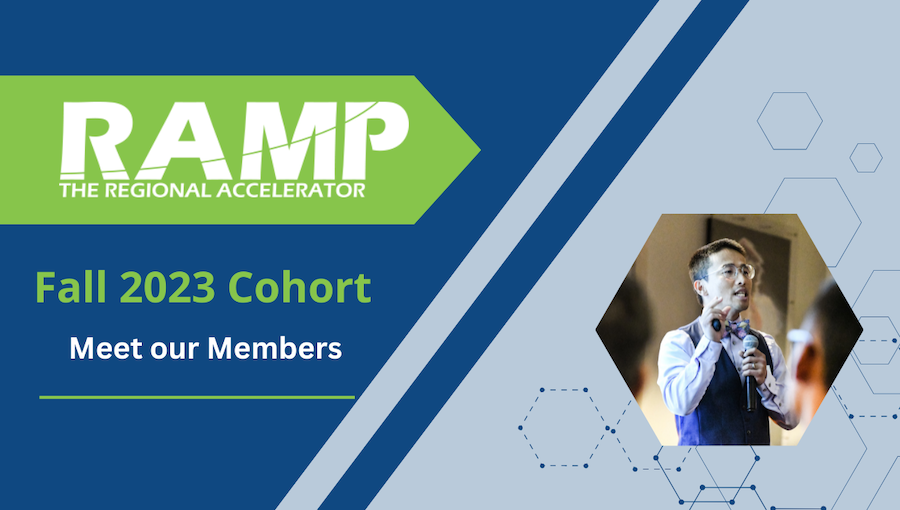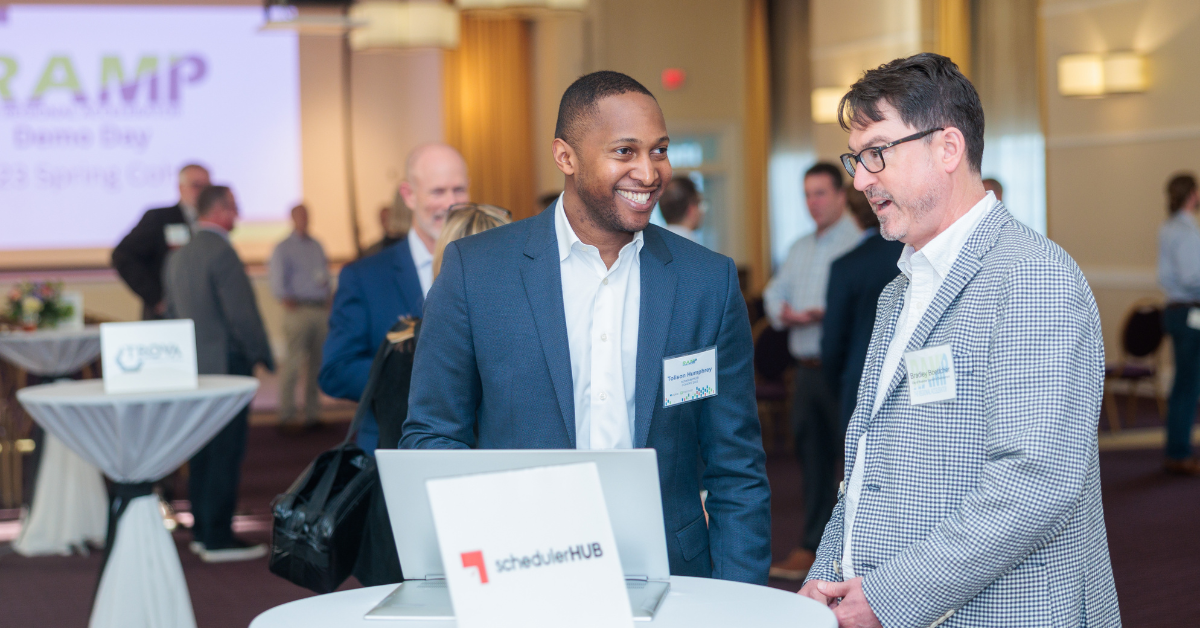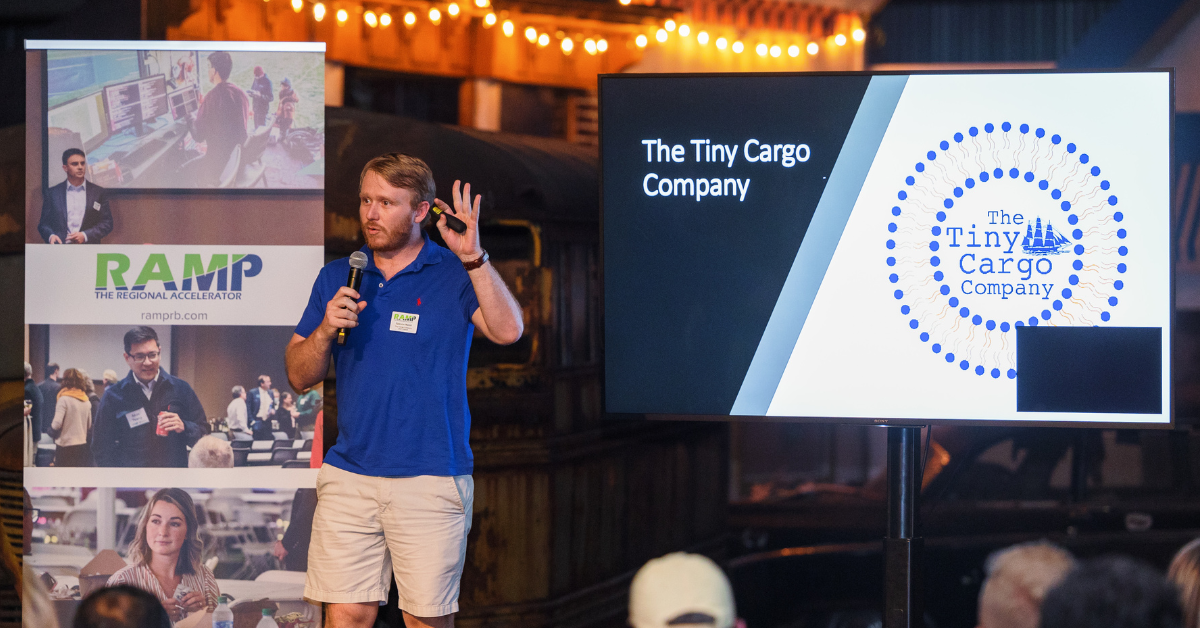RAMP
You can empower innovators, entrepreneurs, and startups in the Roanoke-Blacksburg region this Giving Tuesday on Nov. 28. Your gift provides resources and programming for startups and ultimately supports the […]
Funding helped scale RAMP, which supported 30 startups through an in-residence acceleration program, between October 2020 and September 2023. Leveraging a $982,443 Build to Scale grant from the U.S. Economic […]
Every day, women entrepreneurs and the businesses they lead have a lasting impact on their communities, including those served by the Roanoke-Blacksburg Technology Council. On Nov. 19, we’ll join the […]
From Fairlawn to Fairfax and from bioinformatics to bioeconomies, RAMP is pleased to welcome five startup companies into a Fall 2023 cohort that represents cutting edge health and life science […]
The innovation ecosystem is on fire in the Roanoke-Blacksburg region. With all the big ideas coming out of the area, it’s likely that you’ve heard the terms “incubator” and “accelerator” […]
The DC QuickFire Challenge previously helped The Tiny Cargo Company accelerate their business and connected them with national mentors and resources. Current challenge is open to oncology innovators and includes […]
Five new startups are part of the latest RAMP cohort. Each company is part of a 12-week program to help them grow their startup companies in the Roanoke Region with […]
You are invited to join us as we celebrate the conclusion of our first cohort with a RAMP Wrap Party! Drop by to congratulate the cohort and stick around to […]
RAMP held its first “Demo Day” at Virginia Western Community College last week, with each business given a few minutes to share what it’s been doing. The event drew about […]
Volatia is a full-service language service company, providing on-site, over the telephone, and remote video interpretation and translation services in more than 280 languages. Volatia is led by Baraka Kasongo, recently […]
